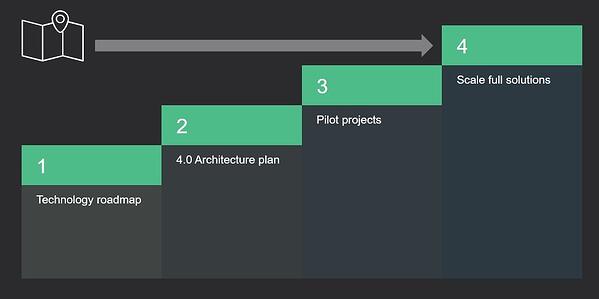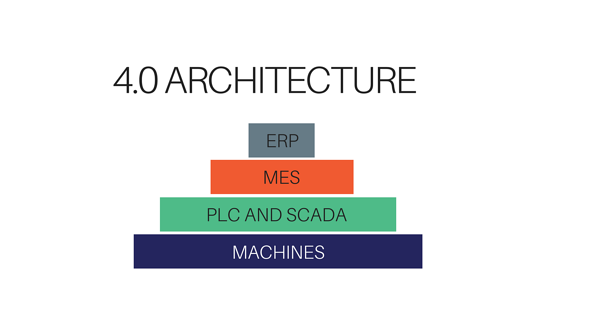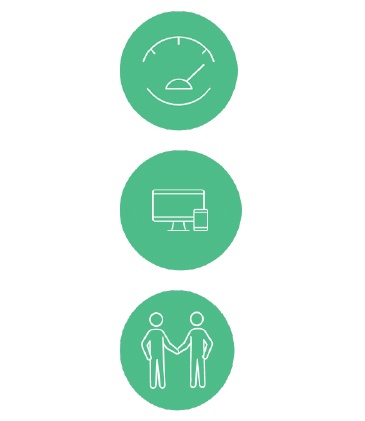Food and Beverage
Three 4.0 pilot innovations are ready to scale.
Industry 4.0 architecture, digital strategy, agile project management, consulting, development, rapid pilot deployment
Australia

About this case study
Due to the highly competitive nature of manufacturing and the use of industry 4.0 levers to enhance operations, we respect the client’s wishes to remain anonymous. We refer to the client as an ‘international manufacturer’ or ‘company’ throughout this case study. We thank them for their support in developing this example of our work.
About the client
The company recently experienced a period of integration, consolidation and expansion, and has a network of manufacturing facilities, distribution centres and third party logistic locations. This brought increased complexity and challenges to the business, and helped spark its industry 4.0 journey.
Client's Challenge
In light of recent expansion, the company quickly recognised that industry 4.0 digitisation would play a central role in remaining a responsive, flexible and agile player in a market that is open to ever changing customer demands.
It understood that major competitors would be chasing gains through industry 4.0 digitisation, and so bringing digitisation into production would be a necessity, not just an advantage.
The company developed a 4.0 mission statement and strategy centred around a fundamental question:
‘How do we use technology to empower our people and get the most out of them?’
With no expertise in this area, they sought a range of strong technology partners to help make its 4.0 vision a reality.
The company’s digitisation approach follows what is fast becoming the gold standard for industry 4.0 and digitsation projects:
1. Technology roadmap

An industry 4.0 roadmap was developed by assessing the current state and mapping this to future goals.
2. 4.0 Architecture plan 
“Our industry 4.0 pilots are really about giving our people access to the right data at the right time in order to make fast, accurate decisions.” – Operations Manager.
It was important that the pilots be: linked to strategy, financially viable and built to quickly scale and deploy across additional machines, lines or sites.
All are now operational on a pilot scale.
The resulting ready-to-scale pilots include:
In a nutshell: Smart phones, wearables and system integration is giving workers all the information they need, at the right time, to act earlier and proactively.
• Connected workers receive timely audio, visual and/or haptic alerts for systems including: machine, material, transport, line run-out and schedule.
• Routine actions are automated while exceptions are managed by the worker – leaving time for more proactive activities.
• Sets the foundation for pattern recognition, prediction, correlation analysis, statistics, regression and histograms.
How: A series of devices are integrated with production and business applications such as paperless quality, raw material tracking, truck tracking and team communications and maintenance communications.
Devices include Honeywell CT50, Peltor Bluetooth headsets and Android smart watches. Built on open source software stacks.
“It seems archaic not to use mobile and data technologies in production as we do in our personal lives. So we’re helping bridge this gap.” – Nukon Senior Consultant Kim Fiddaman.
In a nutshell: The production line has a skate dock with automated truck loading, which comes with an inherent risk that if there’s no trucks, the line stops.
The truck tracking pilot mitigates production delay risk and saves workers time chasing truck locations and arrival times.
• Application automatically monitors distribution
network and production to ensure seamless value chain
• Workers access metrics at a glance: pallet count on
the dock, number of trucks on site, ETA of next truck,
truck locations, direction of travel.
• Workers on the line are alerted when an incident is
imminent or present to respond ahead of time
How: Simple data, open source elements and free APIs were pulled together to make a useful tool.
The application integrates distribution centre locations,
production line, Google traffic API and integration
logistics company API. Then, decision tree logic (DMN)
pulls data together and monitors in real time.
In a nutshell: Mobile enabled quality checks and barcode scanning of raw materials saves time for workers
• Centralised electronic quality management system allows greater probity of information and faster quality checks
• HACCP quality samples can be logged con mobile interface vs paper reporting
• Workers can make data entries wherever they are on the line
• Barcode scan raw materials for traceability and bill of materials cross referencing
How: Mobile-centric application design focusing on usability to save time and increase data visibility.
The Connected worker, Truck tracking and Paperless quality & materials tracking are just three of many pilots and initiatives that the company is pursuing under its Industry 4.0 Roadmap.
These innovations, as well as continued rollout of the architecture plan are expected to bring the business:
• Considerable savings and efficiency gains
• Risk reduction through future proofed infrastructure and programs
• Competitive agility through 4.0 capabilities
• Custom built software using open source technology and low code development tools = rapid application development and ability to scale and integrate into other systems
• Agile sprint project delivery and development accelerators = greater scope flexibility for client
• Collaboration with connected workers to identify biggest opportunities

Start your 4.0 digitisation journey today. Get in touch with us via info@nukon.com.au and we’ll help you begin.
Nukon transforms existing infrastructures, unifies business silos, and turns isolated data into actionable insights that help you thrive.